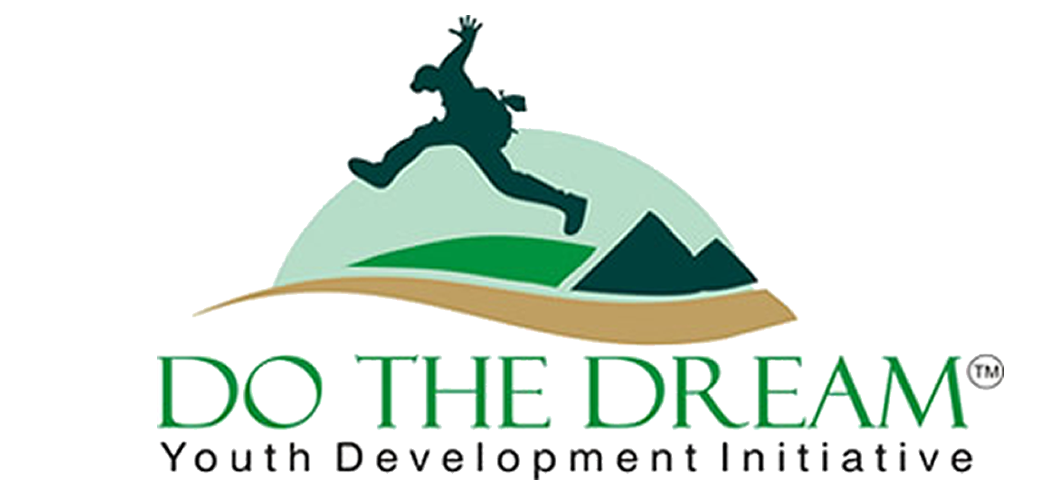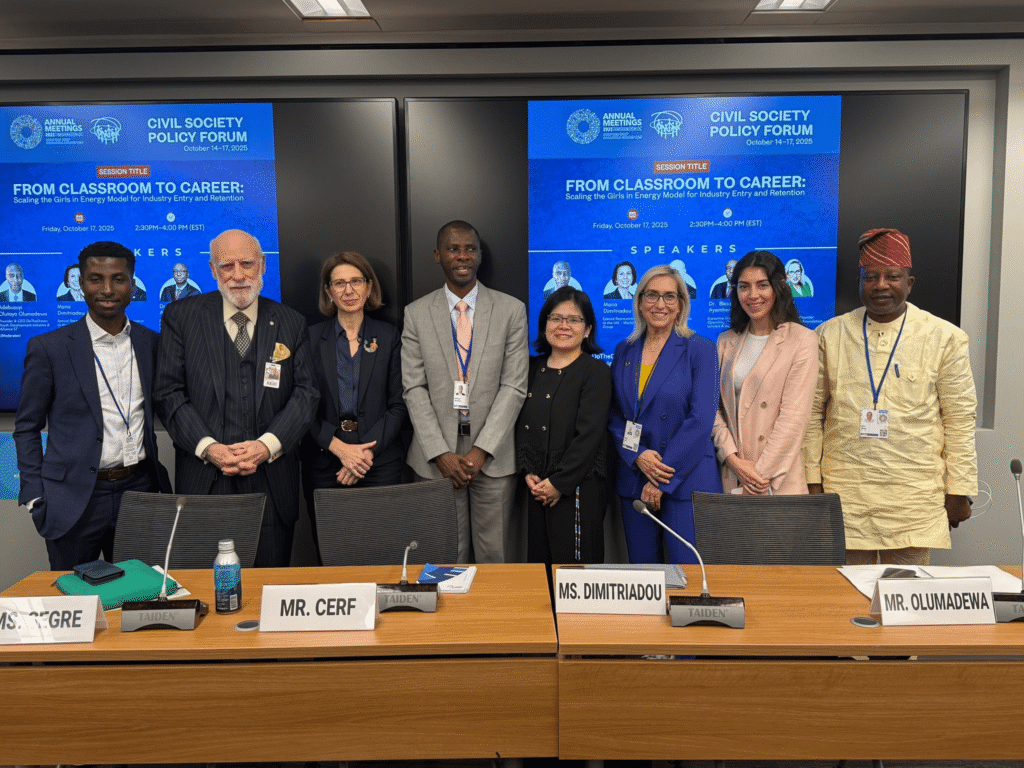
From Classroom to Career: Scaling the “Girls in Energy” Model for Industry Entry and Retention
In a world grappling with energy poverty, climate change, and persistent gender inequalities, the Civil Society Policy Forum (CSPF) – the World Bank and IMF’s premier platform for engaging civil society – hosted a groundbreaking side event on October 17, 2025. Titled “From Classroom to Career: Scaling the ‘Girls in Energy’ Model for Industry Entry and Retention,” the 90-minute session drew a diverse audience of policymakers, industry leaders, civil society representatives, and global innovators to Washington, D.C. Organized by the Do The Dream Youth Development Initiative (DoTheDream YDI), a leading NGO from Nigeria’s Global South, the event spotlighted the urgent need to bridge the gender gap in the energy sector. With women comprising just 13% of participants in energy institutes in Sub-Saharan Africa and facing barriers like limited internships, workplace biases, and inadequate early-career support, the discussion wasn’t just timely – it was transformative.
The Vision Behind Girls in Energy: From Grassroots to Global Impact
Moderated by Adebusuyi Olutayo Olumadewa, founder and CEO of DoTheDream YDI, the session opened with a compelling introduction to the Girls in Energy project by Ola Oluyinka – Vice President International Affairs. Born from the Girls Are Asset Project, this initiative empowers young girls to pursue STEM careers in energy, agriculture, and tech – sectors vital for national growth. Olumadewa painted a vivid picture:
“Imagine a world where electricity is generated from a lime… where women power their communities with 10-megawatt renewable energy mini-grids… reducing energy poverty by 25%.”
The project operates on dual tracks: a “linear” focus on professional career development and a “non-linear” emphasis on skill-building for innovation and sector growth.
Key strategies include conferences, competitions, career events, leadership camps, and community-driven mini-grids where women and girls lead design, implementation, and operations. Outcomes? Enhanced energy access, economic opportunities, and social impacts that advance inclusive progress. As Olumadewa noted, this fosters a journey “from skills to service, to scaling, to solutions, to sustainability,” potentially reversing rural-to-urban migration by creating vibrant, self-sustaining communities.
Amy, a representative from the CSPF, provided context on the forum’s role: “We received nearly 300 proposals this year, and this session was selected by a civil society committee to highlight compelling development priorities.” This CSO-led approach underscores the event’s grassroots credibility, aligning with the World Bank’s emphasis on partnerships.
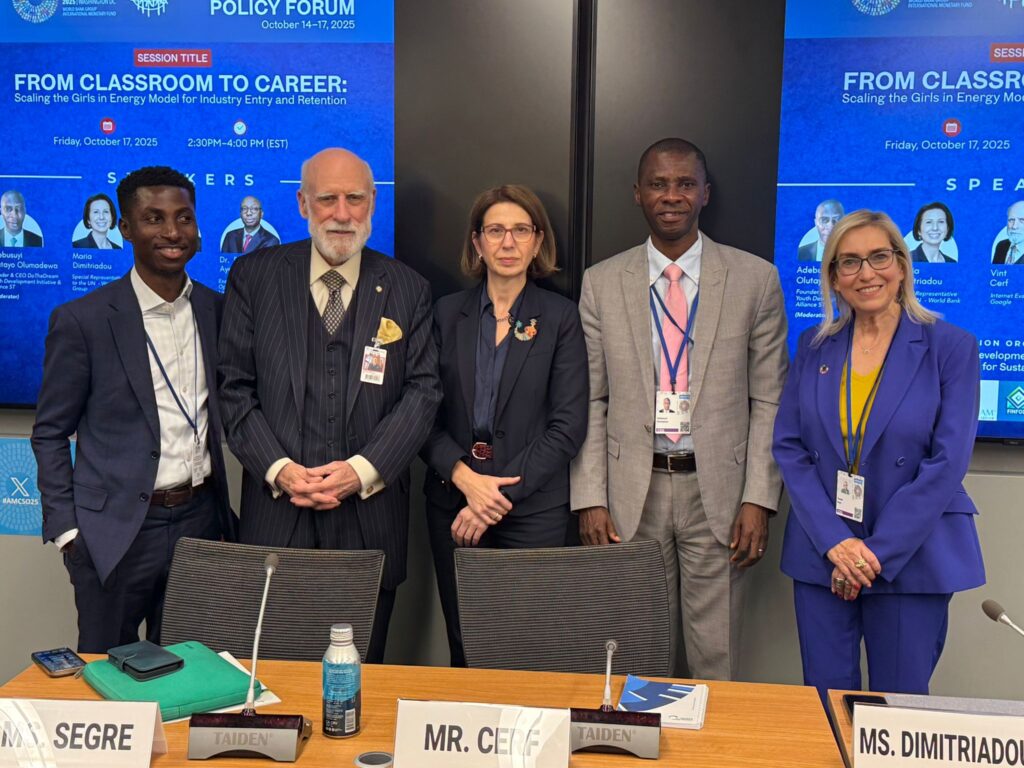
CALL TO ACTION – Investment Opportunity: $21 Million Intervention Fund for the Girls in Energy Project – Empowering Young Women and Developing a 10MW Renewable Energy Mini-Grid in the Global South (2026-2030)
The Girls in Energy Project is seeking a $21 million USD intervention fund for 2026-2030 to significantly boost the participation and leadership of girls and young women in the energy sector across the Global South. This investment will also support the development and deployment of a 10MW distributed renewable energy mini-grid hub across six communities.
The funding will empower thousands of girls with essential resources, technical training, and career opportunities in renewable energy and sustainable solutions. It will expand project activities including conferences, innovation competitions, mentorship programs, leadership camps, and hands-on energy projects. The mini-grid deployment will provide practical experience with advanced renewable technologies, fostering leadership and entrepreneurship while improving energy access in underserved areas.
A core element is the Girls in Energy digital platform and portal (www.girlsinenergy.com), designed as a global hub offering educational content, career resources, mentorship matching, and innovation challenges tailored for young women in the Global South. The platform ensures inclusive access to energy education, technical skills training, and policy advocacy, while strengthening partnerships among educational institutions, energy companies, policymakers, and civil society to develop a sustainable pipeline of female talent.
This $21 million intervention fund and the platform together represent a strategic, comprehensive investment opportunity to close the gender gap in energy STEM fields, promote gender equality, and drive sustainable social and economic progress in the Global South from 2026 to 2030. The project empowers young women as future leaders and innovators shaping the global energy transition.
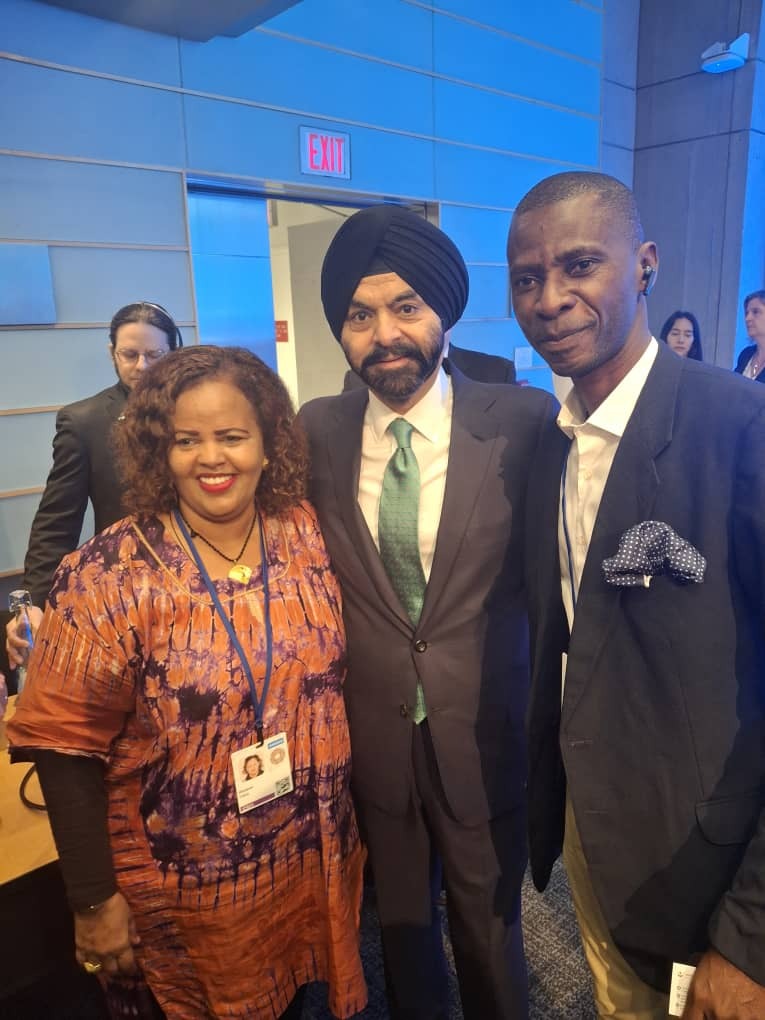
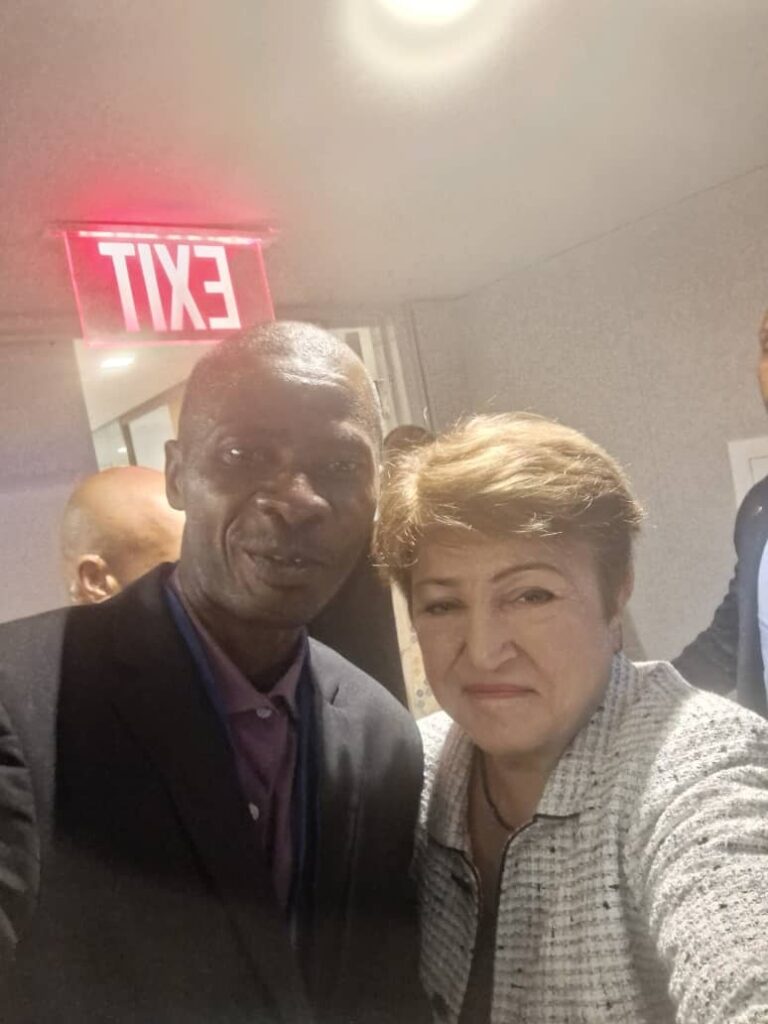
THE GIRLS IN ENERGY PROJECT
The Girls in Energy Project, led by DoTheDream Youth Development Initiative, empowers young girls to pursue careers in the energy sector and helps close the gender gap in STEM fields. Through conferences, competitions, mentorship, camps, and community activities, the project provides girls with the knowledge, skills, and confidence to become future leaders in energy innovation and sustainability.
This initiative grew from the Girls Are Asset Project, which recognizes every girl’s unique potential and nurtures it toward leadership in tech, agriculture, and energy—sectors vital for national growth.
Girls in Energy aims to inspire girls to join the energy field, focusing on industry retention as well as renewable energy, the blue economy, and green economy, to address energy poverty.
The project operates with two teams: one focused on professional career development (linear), and the other on building skills related to sector growth and innovation (non-linear). This approach supports career pathways, retains talent in the industry, and fosters a progressive journey from skill-building to delivering scalable, sustainable solutions.
By running career development programs, competitions, conferences, and leadership camps, Girls in Energy promotes innovation, closes the gender gap, and prepares girls to lead in the energy industry.
Key Focus Areas
Inspire: Ignite interest in energy careers through role models and real-world experiences.
Educate: Deliver technical training in energy systems, renewable energy, and sustainability.
Empower: Develop leadership and confidence to overcome barriers in male-dominated fields.
Connect: Build networks with professionals, mentors, and peers.
Advocate: Advance gender equality and inclusion through awareness and policy efforts.
OBJECTIVES : Showcase the successful strategies of Girls in Energy in attracting young women to energy-related STEM fields.
Identify challenges young women face transitioning into the energy sector, such as limited internships, early career support, and workplace biases.
Create actionable recommendations to sustain engagement and support women’s entry and retention in energy careers.
Promote collaboration among educational institutions, civil society, energy companies, and policymakers to build a stronger, inclusive talent pipeline.
Mission
From October 2025 to July 2030, Girls in Energy aims to impact 14,980 girls, resulting in the development and deployment of a 10MW distributed renewable energy mini-grid hub across six communities. By integrating advanced renewable technologies with community-driven management, the project will improve energy access in underserved areas.
Girls in Energy participants will actively contribute to designing, implementing, and operating this mini-grid, applying their skills and leadership in real-world contexts.
This community-centered model promotes local ownership and sustainability, supporting global energy and climate goals. It enhances energy resilience, creates economic opportunities, and improves living standards by providing clean, reliable power. Ultimately, the project demonstrates how empowering girls in energy careers fosters both career growth and inclusive social and environmental progress
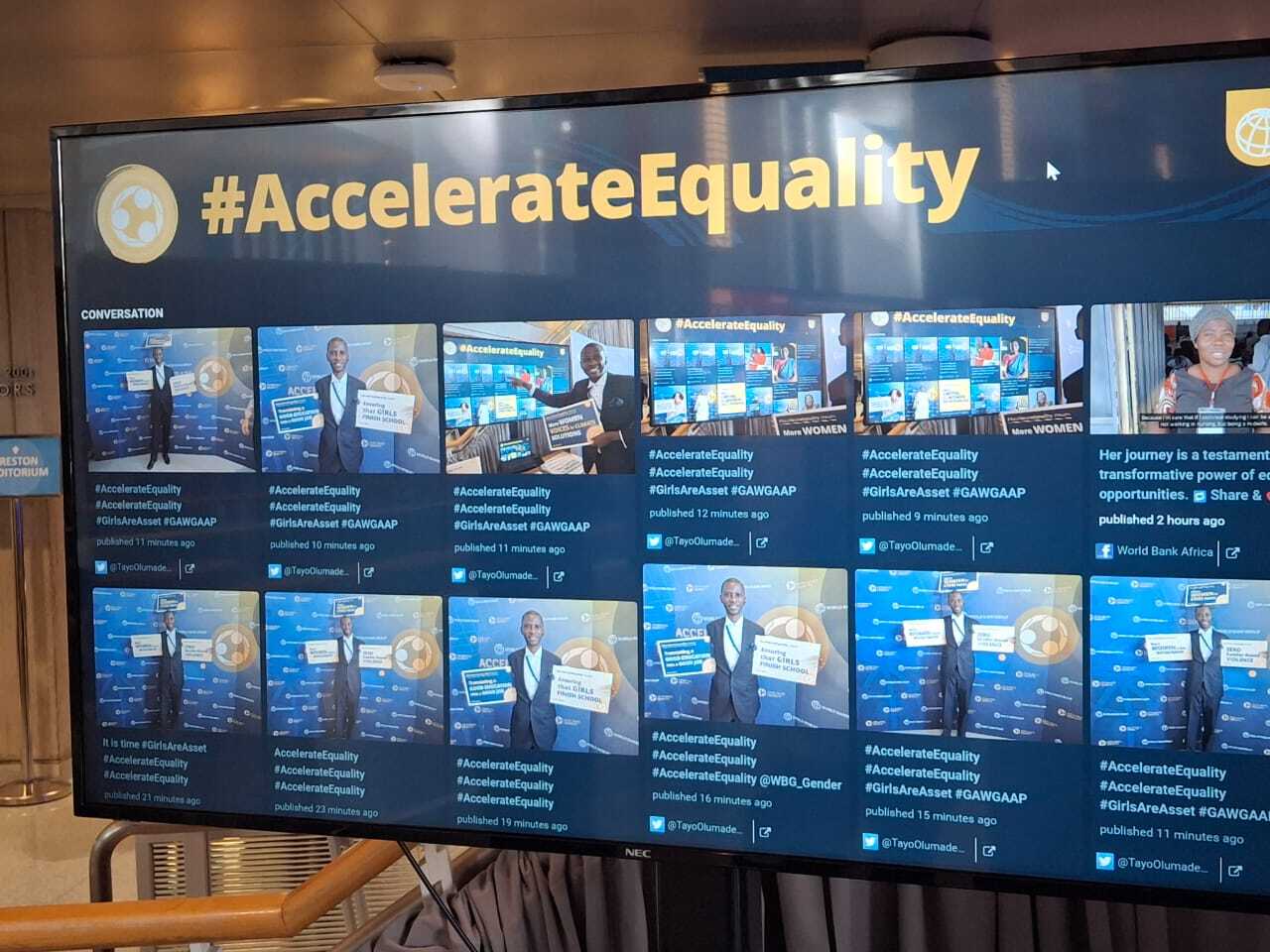
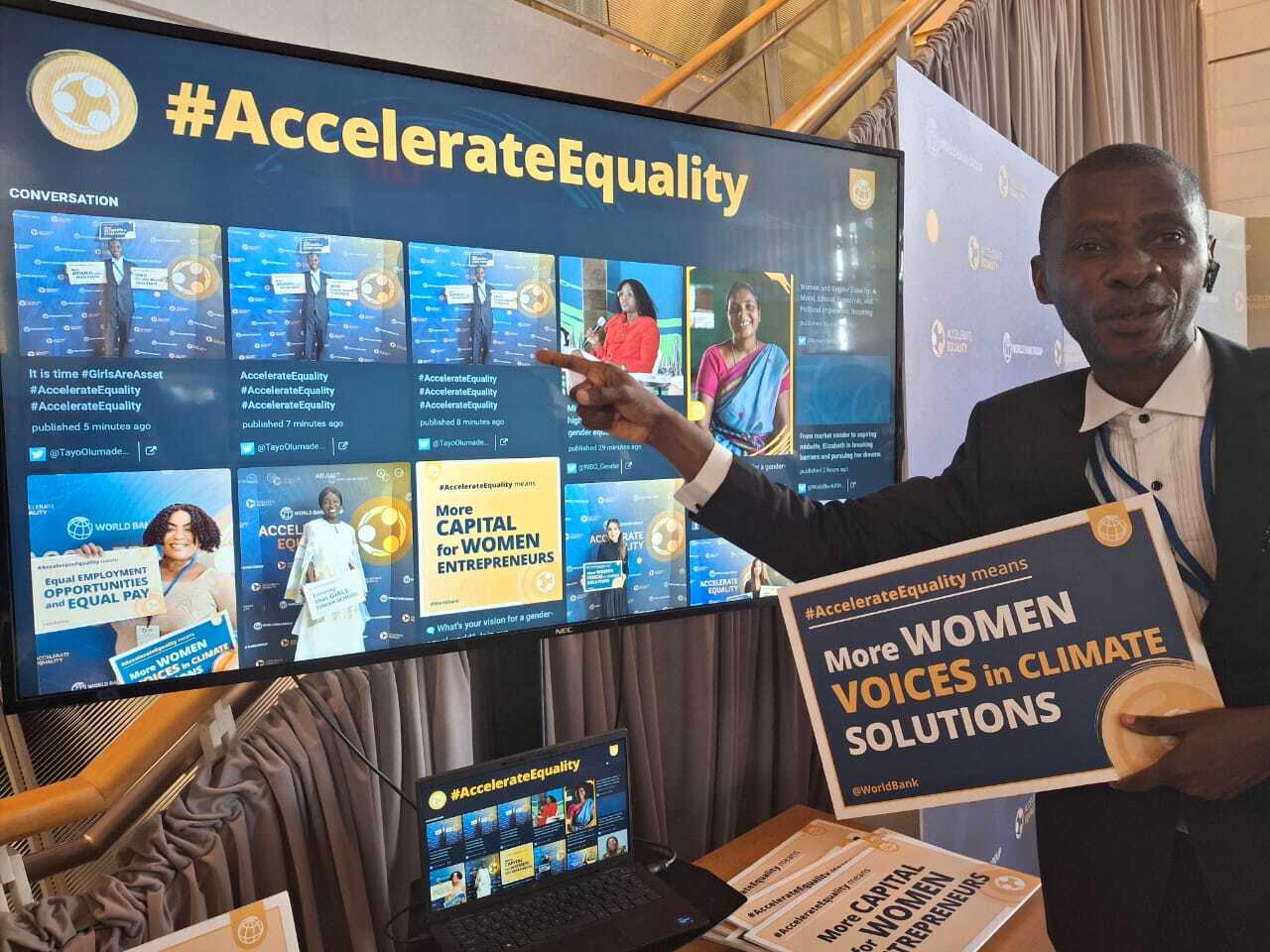
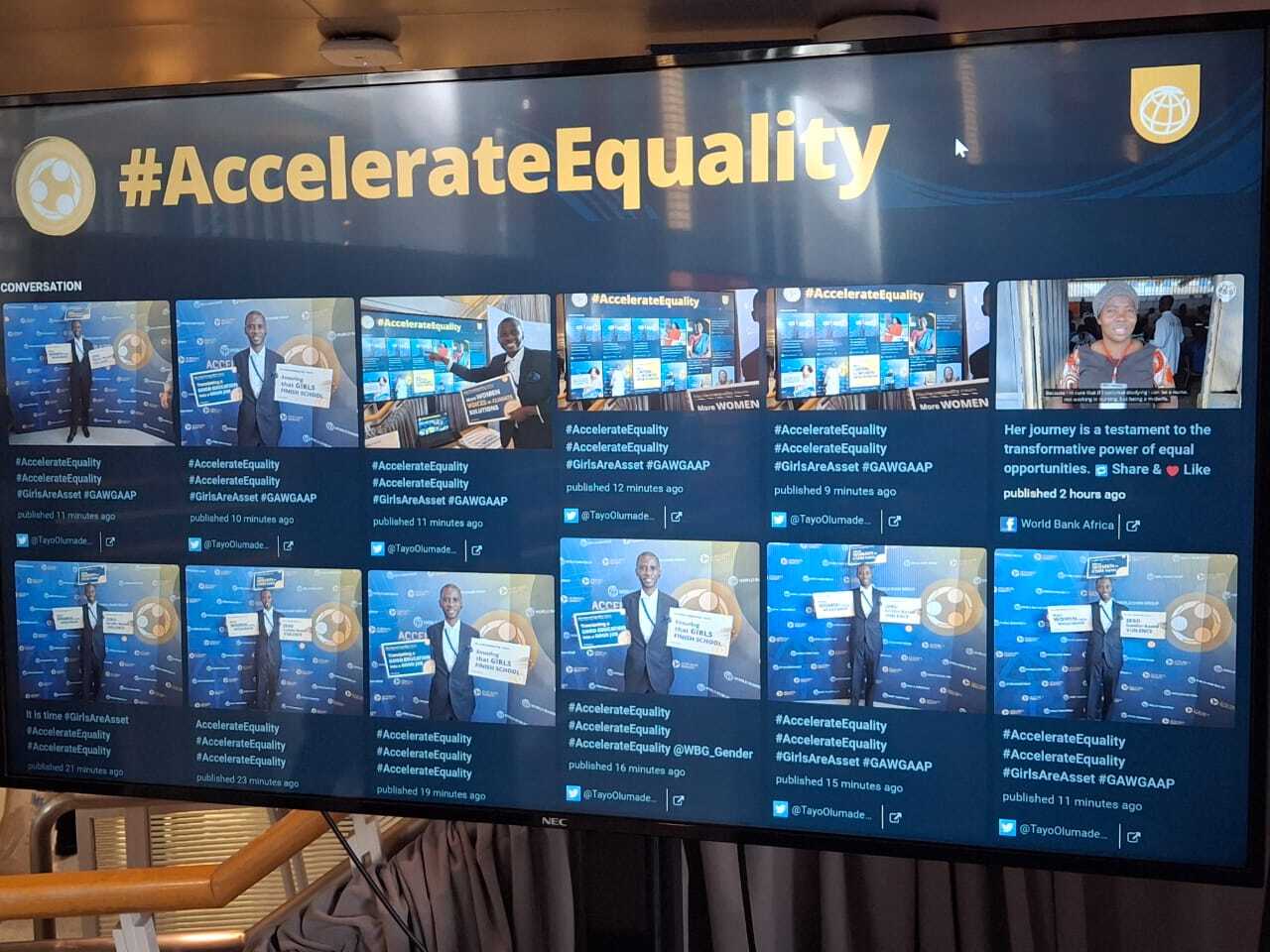
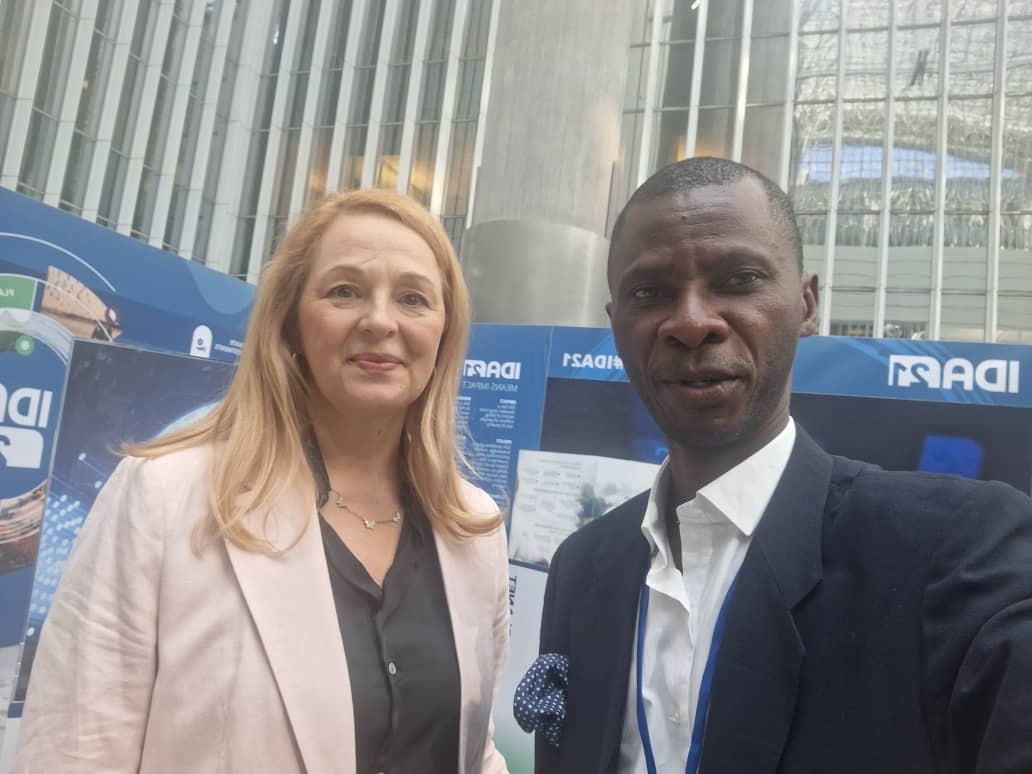
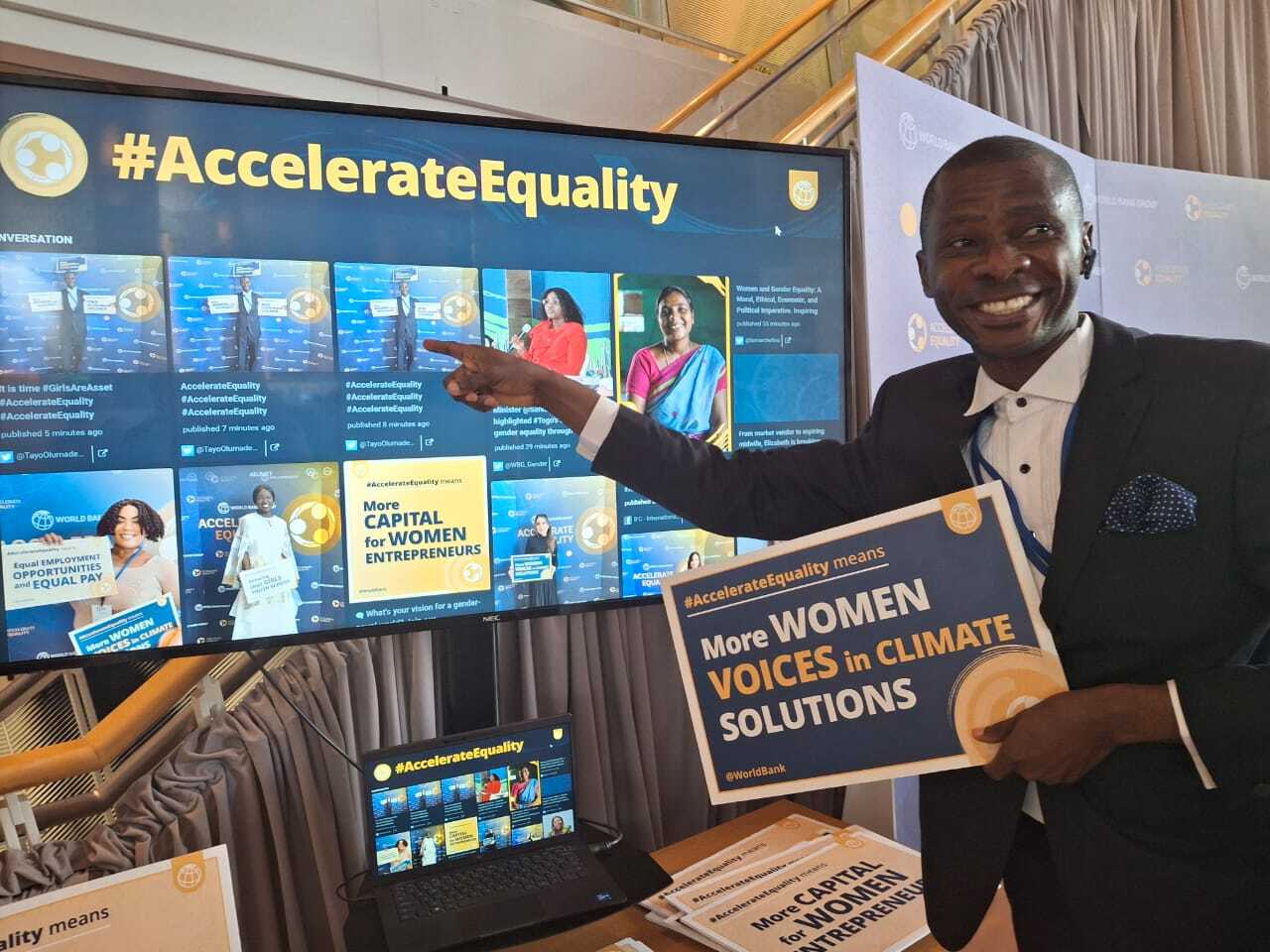
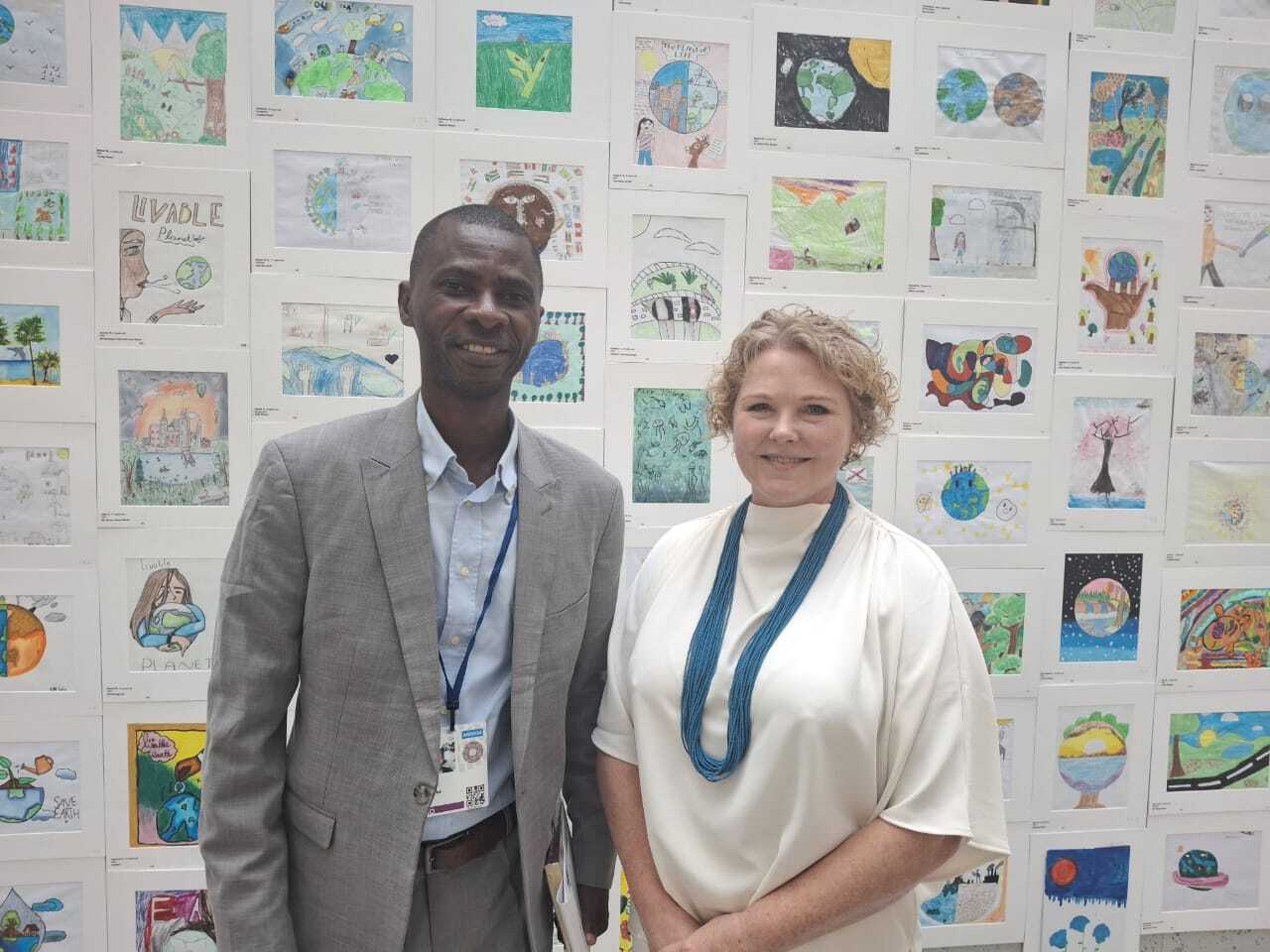
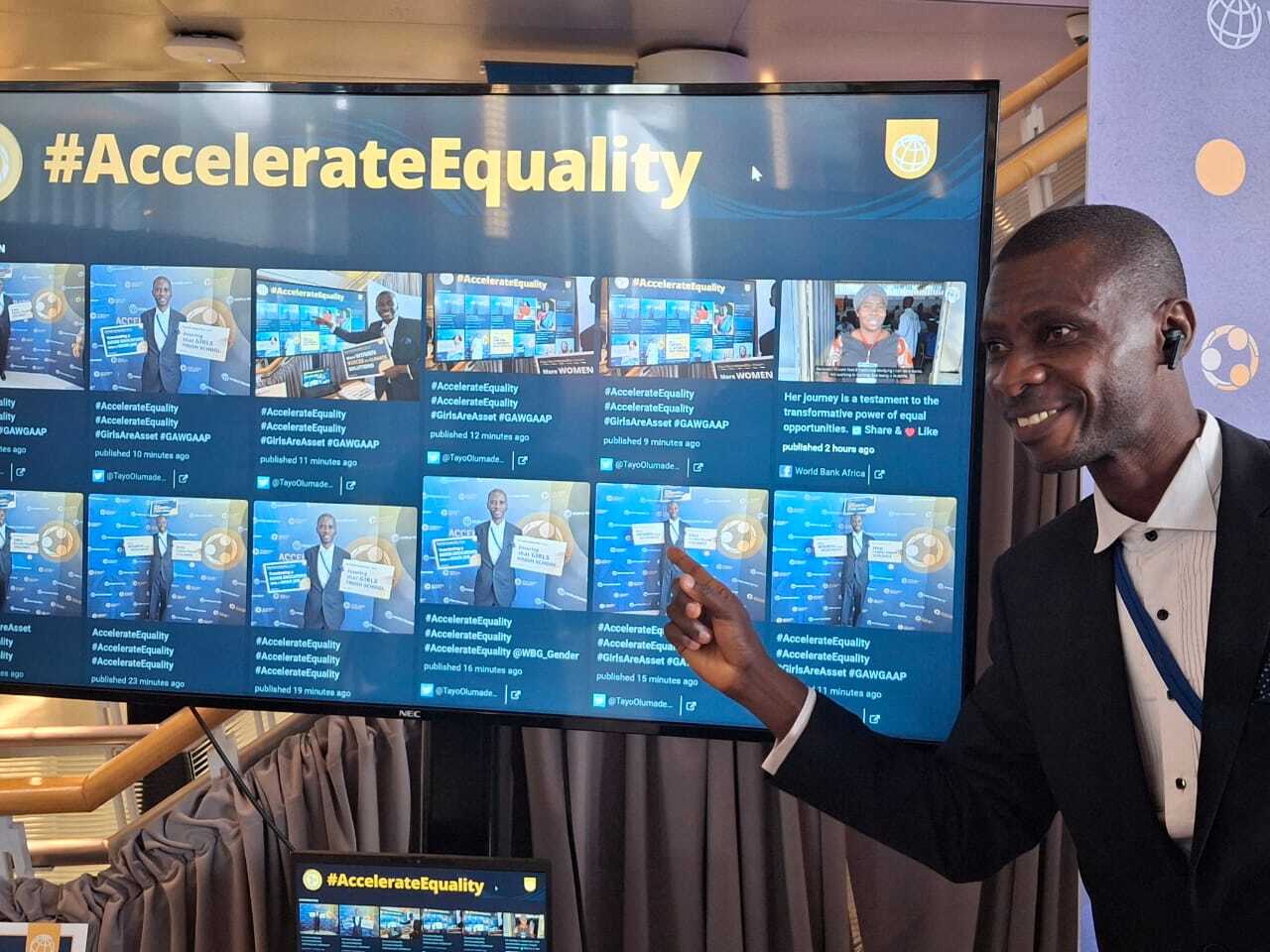
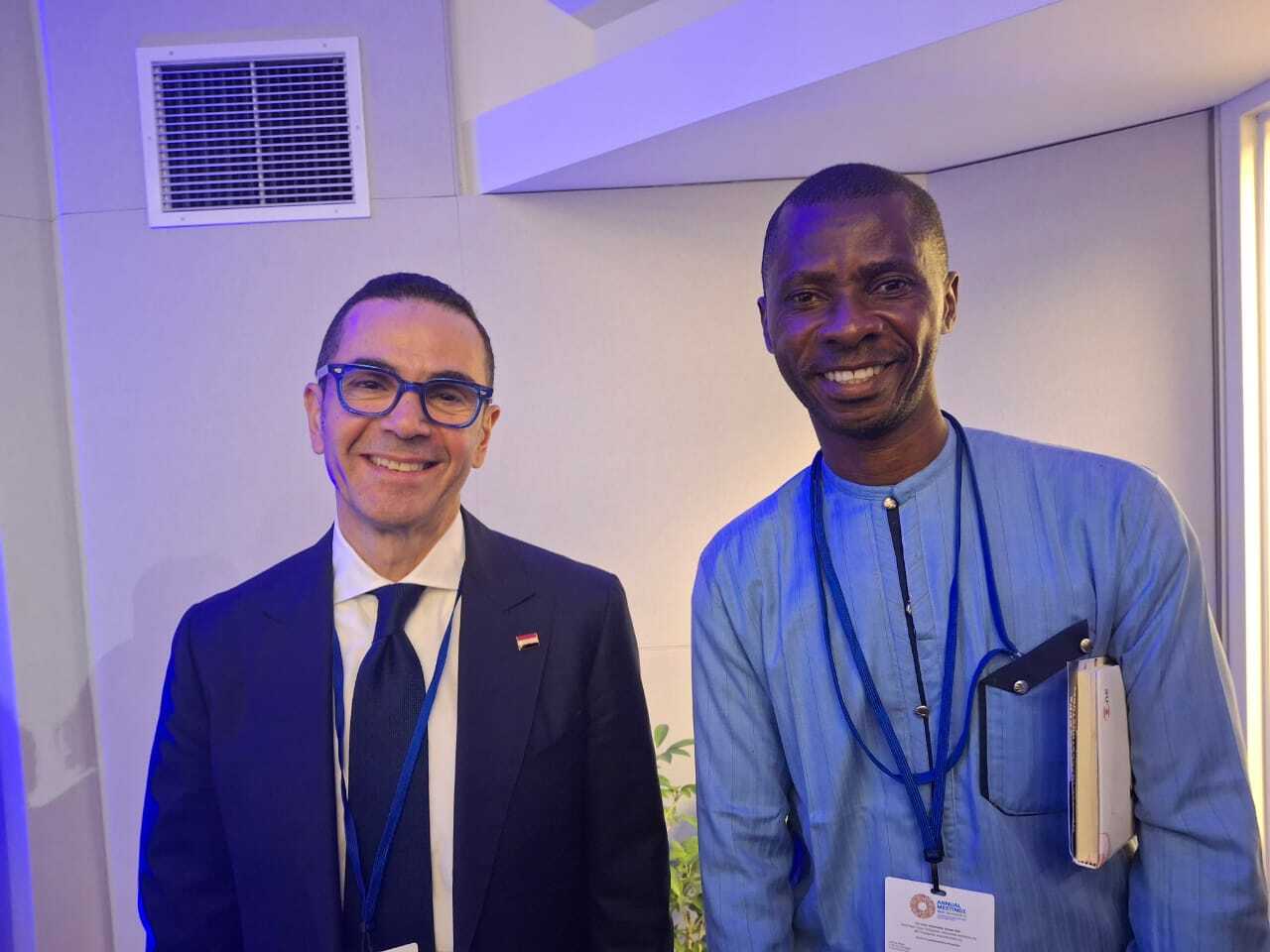
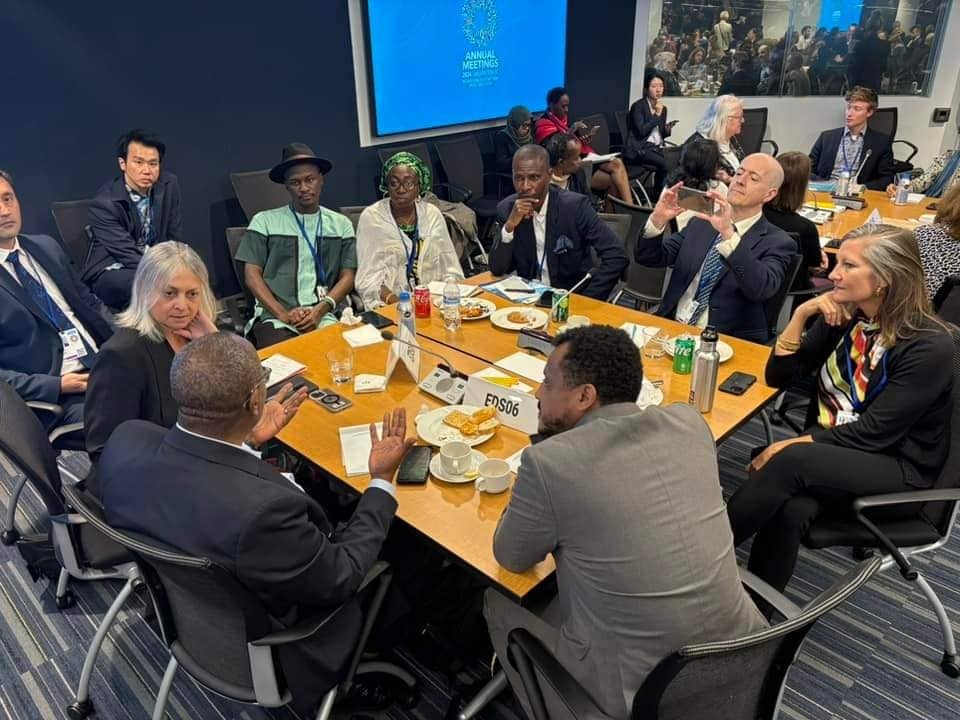
“Empowering Persons with Disabilities: Unlocking their Potential for Sustainable Development and a Prosperous Future”
“The inclusion of Persons with Disabilities is an urgent call to action for member states to recognize and demonstrate care, concern, and compassion as a vital aspect of governance, akin to a new economic model. As vital stakeholders, Persons with Disabilities possess unparalleled capacities and capabilities to address the challenges that threaten sustainable development and the well-being of all living beings, if tapped into. With their remarkable abilities, they serve as messengers of peace and prosperity, demonstrating exceptional keen insight, leadership, and expertise in implementing effective practices that promote sustainable development and inspire innovative solutions. Their role is crucial and indispensable, and their contributions are essential for creating a more equitable and sustainable future for all.”
“Member states must empower Persons with Disabilities to participate fully in the cycle of prosperity, recognizing their valuable contributions as stakeholders in technology, education, energy, environment, trade, and investment. This inclusivity is crucial for leaving no one behind and ensuring their voices are heard in global forums, such as the Summit of the Future, to shape a more equitable and sustainable world.”
“The Cycle of Prosperity -6Ps- from People, to Products/Projects, Presence, Places, Power, to Purpose – must be promoted and encouraged to uphold the rights of Persons with Disabilities, ensuring their inclusion and empowerment for a healthy and thriving planet.”
“People:
We must empower Persons with Disabilities to share their perspectives and experiences, demonstrating and democratizing inclusive love across generations – past, present, and future – as vital stakeholders shaping influences that build a nation. By doing so, we recognize their voices as essential to shaping our collective future, fostering a more inclusive and equitable society for all.” Lets do it
“Product:
We must support and empower Persons with Disabilities to develop innovative products and large-scale projects, unlocking their full potential and ownership of the (SDGs). By doing so, we can foster a sense of ownership, agency, and autonomy among this group, mirroring the success of the Global Alliance for Women and Girls Are Asset project, which exemplifies the transformative power of inclusive innovation and showcases the impact of empowering marginalized groups as change-makers.” `
“Presence:
The innovative products and projects developed by Persons with Disabilities serve as a testament to their capabilities, bringing their voices and perspectives to the forefront and establishing them as vital stakeholders in infrastructure development and connectivity. By showcasing their talents and expertise, they demonstrate their capacity to contribute meaningfully to the development process, ensuring that their needs and experiences are integrated into the design and implementation of inclusive infrastructure and connectivity solutions.”
“Places:
By adopting best practices in inclusive development, we can create thriving communities with sustainable food systems, such as the DoTheDream Youth Development Initiative’s Home Farm project, which promotes self-sufficiency and green economy principles. This approach empowers Persons with Disabilities to contribute to and benefit from local food systems, fostering resilience and well-being.”They are able
Power
The power of purpose driven by inclusivity, innovation, and impact is exemplified by initiatives like the Leadership Library for Government schools in Africa, starting from Nigeria. This model showcases the potential of diverse generations to harness their intrinsic energy and drive progress for Persons with Disabilities, empowering them to forge ahead and achieve their goals.
“In conclusion, the 6Ps cycle empowers Persons with Disabilities to embrace ownership and responsibility as stakeholders, maximizing their impact. As Dr. Lan Ijiwola of the Life Development Center so eloquently put it, ‘Purpose is a living thing worth adopting as a theology of seeing things as they should be, not as they are. Dr. Sam Adeyemi’s words also resonate: ‘In adversity lies advancement,’ and it is time for Persons with Disabilities to harness their potential and birth innovative technologies that foster blossoming economies. By doing so, they will not only improve their own lives but also contribute to a more inclusive and prosperous society. Thank you.
SUSTAINABLE DEVELOPMENT SOLUTIONS NETWORK (SDSN)
The UN Sustainable Development Solutions Network (SDSN) works under the auspices of the UN Secretary-General to mobilize the world’s universities, think tanks, and national laboratories for action on the Sustainable Development Goals (SDGs) and the Paris Agreement on Climate Change; empower societies through free online education; and
The Economic and Social Council (ECOSOC)
The Economic and Social Council (ECOSOC), under the overall authority of the General Assembly, coordinates the economic and social work of the United Nations and the UN family of organizations. As the central forum for discussing international economic and social issues and for formulating policy recommendations, the Council plays a key role
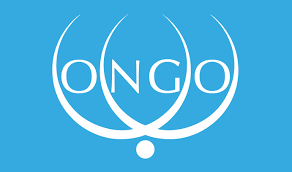 What is CoNGO (Conference of Non-Governmental Organizations in Consultative Relationship with the United Nations)?
What is CoNGO (Conference of Non-Governmental Organizations in Consultative Relationship with the United Nations)?
The Conference of Non-Governmental Organizations in Consultative Relationship with the United Nations (CoNGO)
World Urban Forum
The World Urban Forum (WUF) is the premier global conference on sustainable urbanization.
WUF was established in 2001 by the United Nations to examine one of the most pressing issues facing the world today: rapid urbanization and its impact on communities, cities, economies, climate change and policies. The first WUF was held in Nairobi, Kenya in 2002 and has been held around the world ever since.
Session I: Addressing Poverty Through Women’s Economic Participation
The panel featured an elite lineup: Maria Dimitriadou, World Bank Special Representative to the UN; Vint Cerf, Google’s Internet Evangelist and “Father of the Internet”; Dr. Blessing Ayemhere, Executive Director and COO of Evaac Energy and Ingentia Energies Limited; and Claudia Segre, President of the Global Thinking Foundation ETS.
Dimitriadou kicked off with a resounding truth: “When women participate fully in the economy, everyone benefits.” She highlighted how women’s labor force involvement reduces poverty, citing World Bank research in Latin America where it explained 30% of extreme poverty reductions. In energy, blue, and green economies, she spotlighted initiatives like the Women in Energy Network Africa, offering internships and scholarships, and projects in West Africa and Mozambique training women in fisheries and mangrove restoration. “Electrification is a game-changer for women’s livelihoods,” she added, referencing Nigeria’s mini-grid projects enabling businesses in food processing and tailoring. Multilateral collaboration, she emphasized, shares knowledge and scales solutions, as seen in the Mission 300 initiative to connect 300 million Africans by 2030.
From Nigeria, Dr. Ayemhere addressed the gender gap’s real-world toll: “In Africa, with 1.5 billion people – 50% female – we have 86 million without power in Nigeria alone.” He praised Girls in Energy for overcoming cultural barriers through training and platforms, noting women’s superior performance in roles he’s overseen. “In my 27-year career, women-led responsibilities outperform others,” he said, citing female CEOs stabilizing Nigeria’s energy firms. He called for deliberate inclusion: “From education to employment, we must eliminate discrimination in pay and promotion.”
Segre focused on ecosystem-building: “We need a ‘classroom to career’ compact with shared goals, data, and accountability.” Her foundation’s work on fintech for sustainability includes digital credentials and “skills passports” for global recognition, plus micro-scholarships via digital wallets. Drawing from projects in Ghana and Italy, she stressed financial and digital literacy to combat economic violence: “Transform good intentions into measurable outcomes with social impact metrics.”
Cerf, arriving amid traffic woes from a high-profile visit (likely referencing Ukrainian President Zelenskyy), tied energy to digital access: “The internet doesn’t work without electricity.” He advocated for women’s inclusion in infrastructure: “Why exclude half the population from providing this essential resource?” Leveraging the internet, he envisioned global opportunities in software, design, and e-commerce, urging social norm shifts: “Women must see and seize opportunities.”
